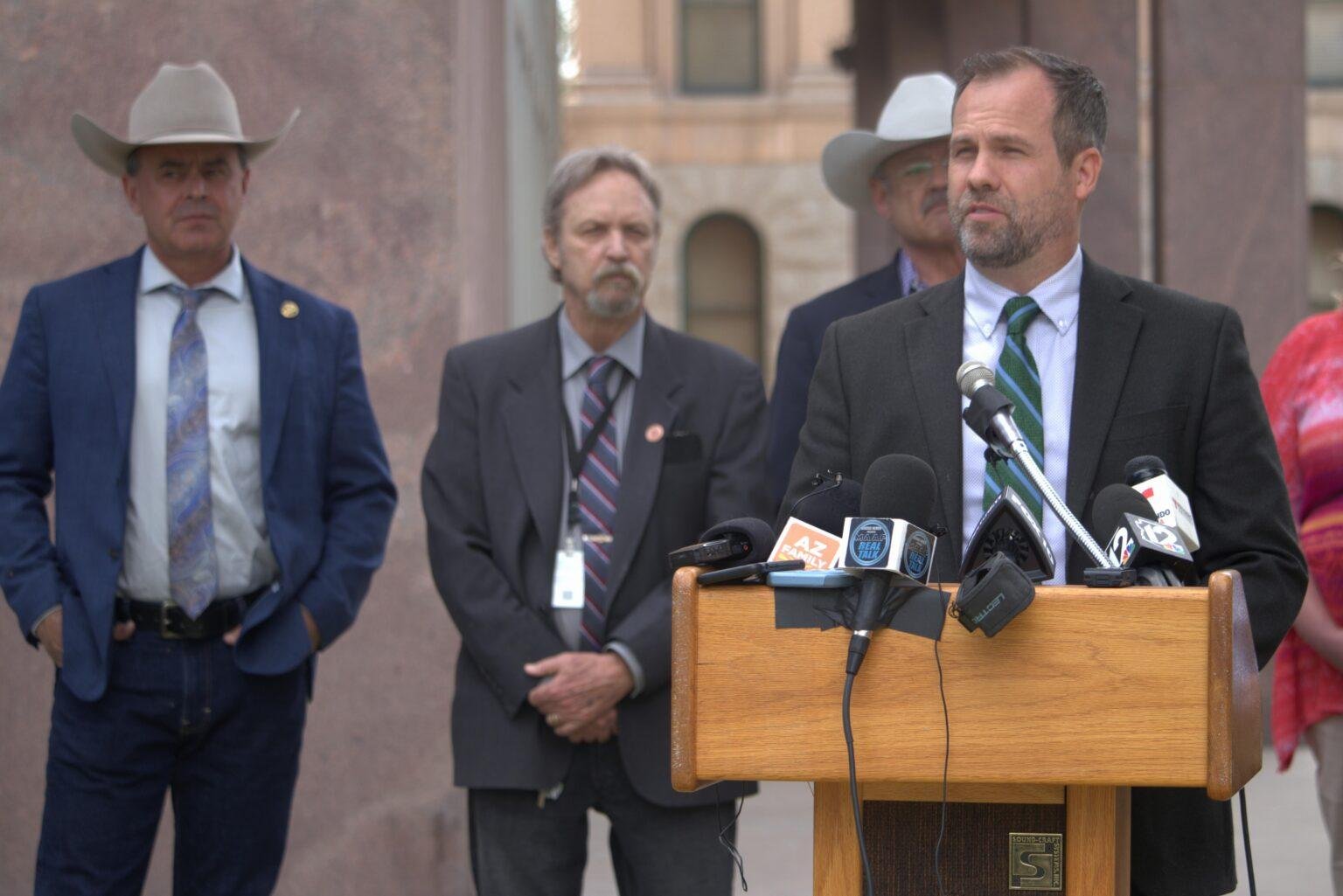arizona
GOP Strikes Back: 2026 Ballot Measure in Jeopardy Following Hobbs’ Veto of Arizona ICE Act

Republican lawmakers in Arizona are taking steps to push for greater cooperation between local law enforcement and federal immigration authorities, despite recent criticisms surrounding wrongful detentions of U.S. citizens. Following the veto of the Arizona ICE Act by Governor Katie Hobbs, GOP leaders are contemplating presenting the legislation to voters in 2026 to ensure compliance from local entities.
Senate President Warren Petersen expressed frustration with Hobbs’s veto, labeling it a political maneuver. The Arizona ICE Act aimed to compel police departments statewide to honor ICE detainers, which allow federal authorities to extend custody of individuals for an additional 48 hours, often without a prior conviction.
Under the vetoed bill, law enforcement agencies failing to comply could face scrutiny or legal action from the Arizona attorney general. Proponents assert that the legislation is necessary to assist in identifying and detaining individuals who may pose public safety threats, despite evidence suggesting many detainers target non-violent offenders.
Republican backers, including Petersen, claim the legislation reflects voter sentiment after Arizona voters supported the Secure Border Act, reinforcing their stance on stricter immigration enforcement. Nearly 63% of voters approved the act, linking it to a broader narrative of public safety and immigration control.
However, the implications of ICE detainers are complex. Incidents of wrongful detentions, where U.S. citizens have been mistakenly held under ICE flags, raise significant concerns. A recent case in Florida highlighted these dangers, as an individual was detained despite clear evidence of citizenship.
Advocates against the Arizona ICE Act argue that it undermines due process and civil liberties, recalling studies showing a high percentage of detentions are issued without attaching to serious criminal offenses. Data indicates that many targeted individuals lack criminal records, questioning the premise that the legislation directly correlates with public safety.
Despite these elements, officials like Yavapai County Sheriff David Rhodes maintain that ensuring compliance with ICE detainers is critical for community safety, claiming that undetected criminals could pose risks. This rationale often invokes a contentious narrative linking immigrants with criminal activity.
Fiscal implications of the proposed legislation have also come into play. Should the Arizona ICE Act reach the ballot and be approved, taxpayers could bear the costs associated with legal disputes stemming from compliance and potential wrongful detentions. Historical precedents suggest challenges in funding such initiatives, complicating the feasibility of the proposal.
Governor Hobbs argued in her veto letter that local authorities should maintain discretion over immigration enforcement, warning against binding law enforcement to federal standards that may not align with local priorities. She emphasized the necessity for Arizonans to determine their policies rather than external political influences.
As discussions continue, the path forward for the Arizona ICE Act remains uncertain, with tensions between state and federal policies at the forefront of immigration discourse in the state.

















